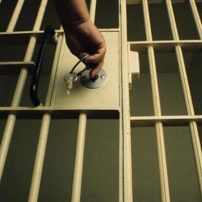
Öcalan and Turkish prisons. An unexpected outcome
JUDGMENT
Öcalan v. Turkey 27.09.2018 (no. 12261/10)
SUMMARY
The case mainly concerns allegations by Abdullah Öcalan that he was subjected to ill-treatment in 2008 during a search of his cell. Before being arrested in 1998, he was the leader of the PKK (Kurdistan Workers’ Party, an illegal organisation). As regards the allegations of ill-treatment, the Court found that there was no arguable claim that Abdullah Öcalan had been subjected to treatment in breach of Article 3 of the Convention by prison warders on 7 October 2008. The Court observed in particular that, on the day of the alleged incidents and on the following days, Abdullah Öcalan had been examined by a number of doctors, who had not found any signs of physical injury or mental distress. Nor had the applicant himself mentioned anything of the sort. In addition, he had not personally filed a complaint with the prison administration or the public prosecutor responsible for the prison. As to the investigation, the Court explained that in the absence of any arguable claims, the national authorities did not have any obligation to conduct an effective investigation.
PROVISIONS
Article 3
Article 2
Article 6
Article 13
Article 14
PRINCIPAL FACTS
The applicant, Abdullah Öcalan, is a Turkish national who was born in 1949 and is serving a sentence in the prison of İmralı (Turkey).
On 21 October 2008 two of Abdullah Öcalan’s lawyers and 236 detainees filed a complaint with the Bursa prosecutor’s office, alleging that Abdullah Öcalan had been tortured and threatened by İmralı prison guards on 7 October 2008 during a search of his cell. For several days, dozens of demonstrations and public protest movements were organised in south-eastern and eastern Turkey in support of Abdullah Öcalan. A disciplinary investigation was subsequently opened against a prison governor and two warders but was ultimately discontinued. In January 2009 the Mudanya public prosecutor also dismissed the criminal complaint, noting that Abdullah Öcalan had been examined by a general practitioner every day, and also by a psychiatrist and a specialist at regular intervals, and that during the consultations he had not complained of any ill-treatment. The prosecutor also observed that the medical reports did not show any trace or symptom of ill-treatment. The appeal lodged by the applicant’s lawyers was dismissed by the Yalova Assize Court in July 2009. Meanwhile, Abdullah Öcalan’s lawyers had asked the sentence-execution judge to take measures to guarantee their client’s safety but the request was rejected. They also appealed to the commission of inquiry on human rights of the Grand National Assembly of Turkey to obtain an investigation, but the commission cancelled its visit to İmralı Prison because Abdullah Öcalan had allegedly told his lawyers “not to exaggerate” the incident in question.
THE DECISION OF THE COURT
Article 3 (prohibition of torture and inhuman or degrading treatment)
As to the allegations of ill-treatment, the Court considered whether any evidence or consistent
indications showed that Abdullah Öcalan had sustained the alleged ill-treatment. It observed that
the applicant had been examined by a general practitioner on the same day as the alleged incidents
and on the following days. In addition, he had been examined on the second day after the incidents
by a psychiatrist and by a specialist in internal injuries. None of these examinations revealed any
physical injuries or mental distress. Moreover, the applicant, even though he had been consulted at
the beginning of each examination about any possible complaints he might have, had not indicated
anything about the alleged ill-treatment to the general practitioner, to the psychiatrist or to the
specialist. It did not appear from the file that he was in a vulnerable situation, since the psychiatrist
had observed that he was intellectually lucid and cooperative. In addition, Abdullah Öcalan had not
personally filed a complaint with either the prison administration or the prison prosecutor. Lastly,
during a visit by the members of the European Committee for the Prevention of Torture and
Inhuman or Degrading Treatment or Punishment (CPT), on 26 and 27 January 2010, Abdullah Öcalan
had been interviewed about the period from May 2007 to the date of the visit but had made no
complaint of ill-treatment by the prison staff.
The Court also observed that a member of the “commission of inquiry” had publicly stated that the
commission had cancelled its visit to İmralı Prison because Abdullah Öcalan had allegedly told his
lawyers not to “exaggerate” the facts in issue. Moreover, even in the event that there had been an
exchange of views between Abdullah Öcalan and the warders as to where he was to be held at the
time of the search and that he had been immobilised, there was nothing to show that any such
conversation or act had reached a minimum level of seriousness, in the total absence of any physical
or mental effects on the applicant.
Consequently, the Court took the view that there was no arguable complaint that Abdullah Öcalan
had been subjected to treatment contrary to Article 3 of the Convention by prison warders on 7
October 2008. That part of the complaint under Article 3 of Convention was therefore manifestly illfounded(Article 35 §§ 3 and 4 of the Convention).
As regards the investigation, the Court explained that in the absence of any arguable claim, the
national authorities had not been under any obligation to conduct an effective investigation in the present case. That part of the complaint was also manifestly ill-founded (Article 35 §§ 3 and 4 of the Convention).
Articles 2 (right to life) and 14 (prohibition of discrimination)
Having regard to all the information available to the Court, and in so far as it had jurisdiction to examine the allegations in question, it took the view that there was no appearance of a violation of the rights and freedoms secured by the Convention or its Protocols. That part of the application was also manifestly ill-founded (Article 35 §§ 3 and 4 of the Convention)(echrcaselaw.com editing).


